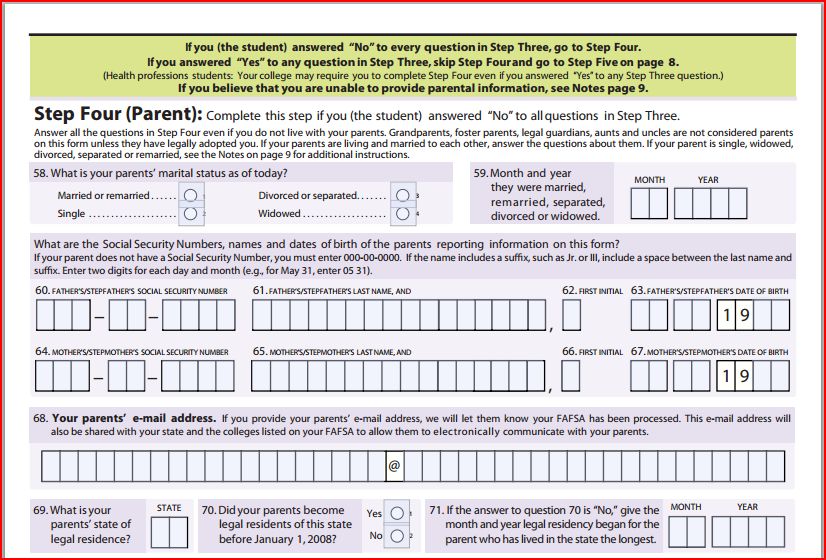Starting in 2014, some students will be required to provide more information about their parents’ finances on the Free Application for Federal Student Aid (FAFSA).
The Department of Education has announced that if a student’s legal parents – either biological or adoptive – are living together, regardless of marital status or gender, their financial information will be required on the FAFSA.
Kris Roach, Director of Admissions and Financial Aid, said the change is meant to create equity and reflect the changing definition of what constitutes as a family.
“I think there’s been a change in the cultural climate in our country regarding the subject of what makes up a family,” Roach said. “My take on this move is…trying to make it simple and create equality among all families, so if a student has two parents, regardless of what those two parents are, both should be included in providing support for the student.”
Roach also said the change could prevent students whose parents can afford to pay for their education from receiving aid they don’t really need.
“Over the years we’ve had students who have two parents but they’re not legally married, but they’re clearly two parents, they apply for aid using the income of the lower (earning) parent so they can get a federal Pell Grant, and the other parent is a surgeon,” Roach said. “So our tax dollars are providing a Pell Grant for someone who clearly has parents who have the means to provide them support.”
A Pell Grant is a program that provides need-based aid to low-income students, according to the Department of Education.
The change will also recognize same-sex parents as contributors to their child’s education.
Sophomore Margaret Thompson said she thinks the change is positive because it will create equity.
“I think (the change) reflects the changing attitudes of society and administration towards marriage and family, and how a couple that isn’t married is recognized as a family unit,” Thompson said. “I think it’s only fair, because both parents are contributing to the income of the household, and it’s not really fair that they could report the lowest one and get more aid.”
But Freshman Steven Sauro said he thinks providing income information for the lowest-earning parents could help students.
“It’s a great way to get more people into colleges,” Sauro said. “If one parent were poor and one’s not, and you get more financial aid because of it, a lot more people can go to school.”
Students whose parents are unmarried and living separately will not be affected by the change.
Grace Pastoor can be reached at past6138@stthomas.edu



